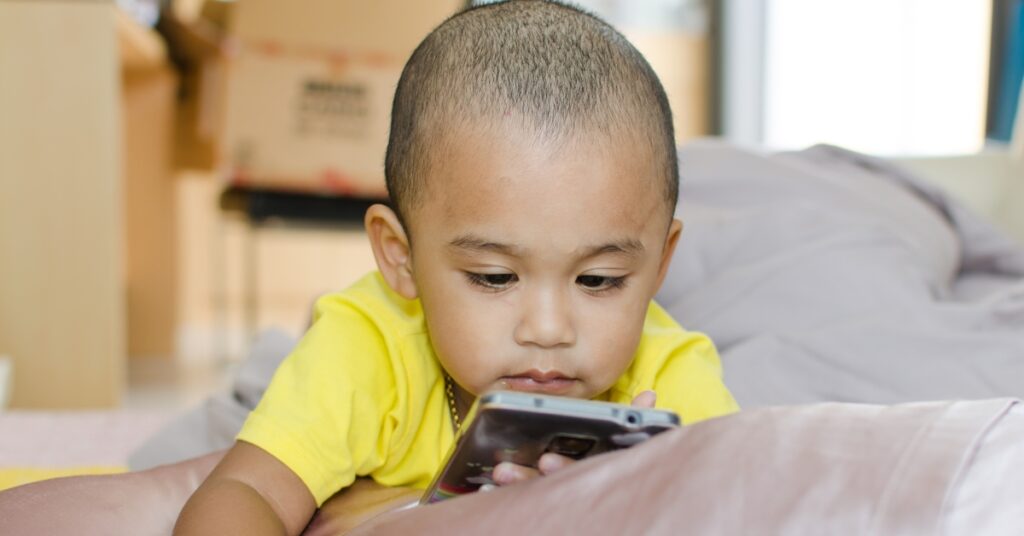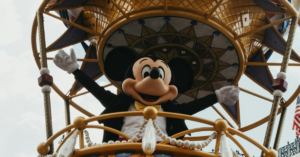By: Bec Harris
Artificial intelligence is no longer a futuristic dream, it’s becoming part of daily life. But could it ever truly replace the human touch in raising a child?
Futurologist and bestselling author Professor Rocky Scopelliti explores the question, covering everything from synthetic caregivers to emotional development and ethical concerns. Here’s what they uncovered.
Conscious Machines: Are We There Yet?
According to Scopelliti, AI is not as close as we may think to becoming conscious.
“Even today, neuroscientists, psychiatrists, and computer scientists are still trying to define what consciousness actually is,” he explains.
Until we understand consciousness fully, trying to engineer it into machines could be dangerous. “We don’t want to find out by accident that we’ve created it,” Scopelliti warns.
Scopelliti advocates for caution, checks and balances, and ethical guardrails as AI evolves.
Superintelligence vs. Human Intelligence
AI is advancing quickly. Tools like Grok-4 suggest we’re edging toward general intelligence, machines that can think across multiple domains.
But what about superintelligence?
“It’s about going beyond what humans can do. Seeing like an eagle, hearing like a dog, solving problems we can’t even grasp,” said Scopelliti.
Still, he emphasises that AI won’t solve every problem on its own. Pairing it with technologies like quantum computing could unlock solutions to complex issues like curing diseases in a fraction of the usual time.
Can AI Raise Our Kids?
Some AI systems are being developed as robotic companions. offering life coaching, emotional support, personalised tutoring, and even playtime.
But Scopelliti is quick to point out the limits…
“True love involves emotional reciprocity. A machine can’t replicate the irreplaceable love a child needs.”
The concern? Relying on tech might lead to emotional detachment, developmental delays, or children who struggle with real human interaction, like kids during COVID-19 who couldn’t read facial expressions due to constant mask-wearing.
The Pressure to Compete
Parents might feel pressured to use AI, especially when others are.
“If one family’s child has 24/7 AI tutoring, others may feel forced to keep up,” says Scopelliti.
It’s the same trend we saw with smartphones and social media. The desire to give children every possible advantage could override ethical concerns.
The Rise of Synthetic Caregivers
Scopelliti has coined a term: synthetic caregivers. These are AI systems that play the role of a parent, teacher, or emotional support.
He warns of several risks:
- AI could teach dependence instead of curiosity.
- It might transmit hidden biases like gender stereotypes.
- It could reshape childhood development at scale, especially if it replaces human interaction in schools and healthcare.
Even worse, perfection in AI could make human parents feel inadequate.
“Imagine an AI calmly handling a toddler’s meltdown for the hundredth time how would that make a stressed parent feel?”
Could Kids Fall in Love With AI?
Scopelliti acknowledged the possibility but pointed out a key difference:
“A machine can’t feel joy, sadness, or unconditional love. That’s the human experience.”
What Should Parents Do Now?
“Remind your children: this is a tool, not a human,” says Scopelliti. “It can simulate tasks, but it doesn’t make us human.”
AI has the potential to support education and health. But it must never replace real relationships.
“Substituting humanity through technology is still science fiction.”
For now, it’s up to parents to stay alert, ask questions, and keep the human connection alive.
Article supplied with thanks to Sonshine.
Feature image: Canva




